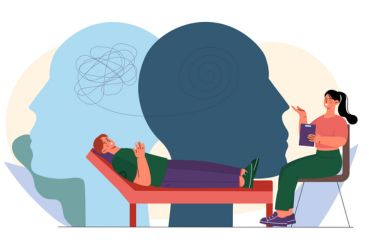Cannabis CBD is becoming well-known for its possible health benefits, showing promise in easing anxiety, improving sleep, and helping with pain management. Many people are interested in CBD because researchers are studying its role in supporting both physical and mental wellbeing. Unlike THC, CBD does not make us high, yet it may provide certain medical benefits.
We often see CBD highlighted in the media, but it's important to understand what recent research says and how it might help us in everyday life. CBD products come in many forms and people use them for a variety of health issues, from chronic pain to sleep problems. Some studies and health experts believe that CBD may assist with reducing anxiety and managing neurological conditions, although more research is still ongoing.
Key Takeaways
- CBD may support mental and physical health in several ways.
- Research on CBD's medical uses is increasing, but results are still mixed.
- We should be aware of both potential benefits and important considerations.
Understanding Cannabis CBD
Cannabis CBD is a key compound in cannabis plants. It does not cause a ‘high’, but it is being studied for various effects and possible health uses. The details below focus on what CBD is, the main differences between CBD and THC, and how the law treats CBD products.
What Is CBD?
CBD stands for cannabidiol. It is one of over a hundred cannabinoids found naturally in the cannabis plant. Unlike THC, CBD does not have intoxicating effects.
CBD is usually extracted from hemp, a type of cannabis with very low THC. We find it in many products including oils, capsules, creams, and foods. People are interested in CBD for its potential to help with pain, anxiety, and seizures, though strong proof exists mostly for certain seizure disorders.
Current research is ongoing. While some studies are promising, many claimed benefits still need more high-quality scientific backing. The Harvard Health blog mentions that anxiety and pain relief are two of the most common uses people report, but also notes that more evidence is needed.
How CBD Differs From THC
CBD and THC are both cannabinoids, but they affect our bodies in different ways. THC is the component in cannabis that gives people a sense of being ‘high’ or intoxicated. CBD does not cause these effects.
Key differences between CBD and THC:
| Cannabinoid | Causes a ‘high’? | Legal Status | Main Uses |
|---|---|---|---|
| CBD | No | Varies | Health, wellness |
| THC | Yes | Strict | Recreational |
CBD interacts with some of the same parts of the brain as THC but does so without triggering the same strong mental effects. This is why many people feel comfortable trying CBD products but avoid THC due to its psychoactive impact.
Legal Status of CBD
The legal status of CBD is different in each country and sometimes even within regions of the same country. In the UK, CBD is legal if it comes from approved industrial hemp strains and contains less than 0.2% THC.
CBD sold as medicine must be licensed. Over-the-counter CBD products are legal if they do not make medical claims and meet certain safety requirements. In other places, the law can be much stricter, so it is important that we check our local regulations before buying or using any CBD products.
For more information about how CBD is regulated, the Mayo Clinic provides useful guidance about safety, effectiveness, and legal concerns.
Cannabis CBD for Physical Health
CBD from cannabis may support our physical health by helping with pain, inflammation, and certain neurological conditions. Research into these uses is ongoing, but some results seem promising.
Pain Management Benefits
Many people use CBD for pain relief. Studies suggest it may help with both chronic pain and temporary aches. For long-term health problems like arthritis or back pain, some users report feeling less discomfort when taking CBD.
Unlike some medicines, CBD does not cause a "high" because it lacks significant THC. This means we can use it for relief without feeling drowsy or impaired. According to research, cannabis-based products may be helpful for certain types of pain, especially when other treatments have not worked well.
CBD oil is available as creams, capsules, and tinctures. How well it works can depend on the person and the specific type of pain. It's important for us to talk with a healthcare provider before using CBD for pain, especially if we take other medicines.
Reducing Inflammation
CBD has been shown to help lower inflammation in some studies. Inflammation is the body's natural response to injury or illness, but too much can cause swelling and damage. People with conditions such as arthritis and inflammatory bowel disease sometimes use CBD to manage their symptoms.
Reducing inflammation may also help ease joint pain and stiffness. Unlike common anti-inflammatory medicines, CBD does not carry the same risk of stomach upset or bleeding. This makes it attractive as an option for those with sensitive stomachs.
CBD can be taken as oil, capsules, or topical products. The effects may take time and can be different for each person. Evidence suggests it holds promise, but further research is needed to fully understand how it works for inflammation.
CBD and Neurological Health
CBD may support health in conditions linked to the nervous system. Research has focused on illnesses such as epilepsy, Parkinson's disease, and multiple sclerosis. For some people with these conditions, CBD may help lower the number or the severity of certain symptoms.
In epilepsy, especially some rare childhood forms, CBD has been used to help manage seizures when other treatments did not work. Early studies also hint that CBD could help with symptoms like muscle stiffness or tremor in diseases like Parkinson's.
It's important to know that research is still ongoing. The NHS states that CBD may have medical benefits without causing a high. However, we should always consult healthcare professionals because drug interactions are possible.
The evidence is still growing, but CBD remains an option for nervous system health that some people consider worth exploring.
Mental Health and CBD Use
Research suggests CBD may help manage symptoms of anxiety and improve sleep quality in some people. Understanding these possible effects can help us make informed choices about how to use CBD for our mental health.
CBD for Anxiety Relief
Studies show that CBD may have a calming effect on the brain. Some clinical trials and surveys found that people using CBD reported lower anxiety levels, with some saying it helped ease symptoms of social anxiety and general stress.
CBD may work by affecting serotonin, a chemical in the brain linked to mood and anxiety. In a survey with over 2,000 participants, more than one in six people said CBD helped improve their mood and reduce anxiety symptoms. However, the effects can be different for everyone, and not all studies agree on how well it works. Clinical evidence is still building, and experts call for more large-scale research.
You can read more about current findings from Harvard Health and additional details from WebMD.
Effects on Sleep Quality
CBD has shown promise for improving sleep in people with sleep problems linked to anxiety or pain. Some small studies have found that people who used CBD reported falling asleep faster and waking up less during the night. It may also help those with insomnia by creating a sense of calm and lowering racing thoughts before bedtime.
The way CBD affects sleep can depend on different factors, such as dosage, timing, and each person's health condition. Not everyone gets the same results, and high doses may cause drowsiness during the day. While there's encouraging evidence, more research is needed about long-term safety and the best ways to use CBD for sleep.
Guidance on mental health uses for CBD can be found at Verywell Mind and more is available from Healthline.
Potential Therapeutic Applications
CBD has been widely studied for its effects on long-term health conditions and specific medical issues. Evidence supports its use in improving symptoms of certain illnesses and reducing discomfort for some patients.
CBD in Chronic Illness Treatment
Research shows that CBD may help manage chronic pain and inflammation. People living with arthritis, fibromyalgia, or back pain sometimes use CBD to lessen their symptoms. Studies suggest that CBD acts on the body’s endocannabinoid system, which is involved in pain control.
Many individuals have reported feeling relief from nerve pain, muscle tightness, and mild joint pain after using CBD products. While more research is needed, one review highlights that CBD could also help relieve mild aches and decrease stress for some users.
CBD also attracts attention for its calming effects. Early findings show that it might support those struggling with anxiety and sleep issues connected to chronic illness. Side effects are usually mild, including tiredness or dry mouth.
Support for Epilepsy and Seizures
One of the most well-known uses for CBD is treating epilepsy, especially severe forms that do not respond to traditional medicines. The medicine Epidiolex, which contains purified CBD, has been approved for use in certain childhood epilepsy syndromes.
Clinical trials show a clear reduction in the number of seizures in some patients with conditions like Dravet syndrome and Lennox-Gastaut syndrome. According to the Harvard Health blog, these results are based on strong evidence from scientific studies.
Parents of affected children often report better quality of life and less stress when seizures are better controlled. Side effects, such as drowsiness or diarrhoea, may occur but are generally seen as manageable.
Considerations and Precautions
When using CBD for health, it's important to know the possible risks and how to take it safely. While CBD may be helpful for some health concerns, it can also cause side effects and may interact with some medicines.
Possible Side Effects
CBD is usually well-tolerated, but it can cause unwanted reactions in some people. Some of the most common side effects are:
- Dry mouth
- Drowsiness or sleepiness
- Diarrhoea
- Loss of appetite
- Light-headedness
Less common but more serious issues like liver injury have also been reported, especially with high doses. Children, pregnant women, and people with certain medical conditions should be extra cautious, as safety for these groups is not well understood. For more details on side effects, visit this information on CBD oil side effects.
Interactions With Other Medications
CBD can interact with some prescription and over-the-counter medicines. These interactions may change how certain drugs work or increase their side effects. For example:
- Some epilepsy medicines
- Blood thinners like warfarin
- Heart medicines
- Drugs that affect the liver
CBD may slow down how our body breaks down some medicines, causing higher levels of the drug in our system. This can make side effects worse or affect how well the medicine works. We should always talk to our doctor or pharmacist before using CBD with other medicines. More information on medicine interactions with CBD can be found online.
Safe CBD Use Guidelines
To use CBD safely, we should follow some simple steps:
- Start with a low dose and increase slowly if needed
- Only buy products from reputable brands
- Check for third-party testing to ensure product quality
- Avoid taking CBD if pregnant or breastfeeding unless advised by a doctor
People in certain groups, like children, pregnant women, or those with liver problems, should avoid CBD unless a medical professional guides them. For the latest official guidance, see the Food Standards Agency advice on CBD. Taking these precautions will help us limit risks and make more informed choices about our health.
Frequently Asked Questions
CBD oil is widely discussed for its possible role in relieving pain, supporting mental health, and benefiting older adults. We must also know about side effects and how safe it is for regular use.
What are the recognised advantages of using CBD oil?
We often hear that CBD oil can reduce pain and promote relaxation without causing a high. Some evidence suggests it may help people manage anxiety and sleep problems. CBD oil may also reduce inflammation, which can benefit those with chronic health conditions.
Can CBD oil help alleviate chronic pain?
CBD oil is thought to help ease chronic pain by affecting systems in our bodies related to pain and inflammation. People with conditions like arthritis or back pain sometimes report feeling better when using CBD oil. However, the exact way it works is still being studied among experts. For more information on how CBD oil may relieve pain, visit this CBD pain relief FAQ.
How does CBD contribute to mental health and wellbeing?
We know many people use CBD oil to help with anxiety, stress, and sleep disorders. Research points to its possible calming effects, which may support better mental health. It does this without the mind-altering effects linked to cannabis products containing THC.
Are there specific benefits of CBD for ageing populations?
Older adults may find CBD beneficial in managing age-related pain, stiffness, and trouble sleeping. There is also interest in whether CBD could help with symptoms tied to certain neurological conditions seen in ageing. Still, more studies are needed to fully understand these effects and their safety.
What should one be aware of regarding the potential side effects of CBD oil?
CBD oil can cause side effects like dry mouth, diarrhoea, lower appetite, drowsiness, and fatigue. It might also interact with medicines we already use. You can read more about CBD oil side effects and safety at this Mayo Clinic report on CBD.
Is regular usage of CBD safe for maintaining overall health?
Most research says that CBD is generally well-tolerated, but long-term risks are not fully known. Regular use may be safe for many, but those with health conditions or taking other medicines should speak to their doctor first. We should always use CBD products as directed to lower the chances of unwanted effects.





















